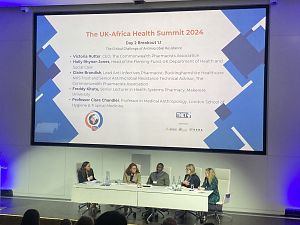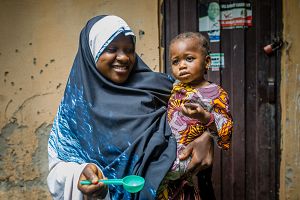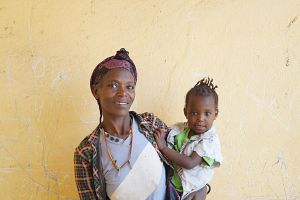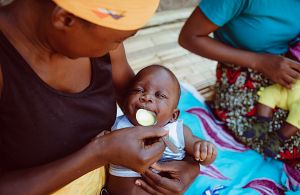Latest News
Months: Jan Feb Mar Apr

Malaria Consortium honoured by Ugandan government for contribution to combat malaria
23 April 2024Malaria Consortium has been honoured for its groundbreaking efforts in malaria prevention, both within Uganda and internationally, at the annual World Malaria Day Scientific Colloquium 2024.

International summit calls for AMR accountability in public health interventions
21 March 2024The UK-Africa Health Summit took place this week, uniting global health leaders in antimicrobial stewardship to tackle this increasing threat ahead of the 2024 High-level Meeting on antimicrobial resistance (AMR) in New York.

Global SMC community celebrates new milestone at SMC Alliance Annual Meeting in Nigeria
6 March 2024The fifth Annual Meeting of the Seasonal Malaria Chemoprevention (SMC) Alliance brought together implementing countries, partners and donors to review the past year’s activities and plan for future SMC campaigns across Africa.

Scaling up key interventions could halve pneumonia-related childhood mortality
13 February 2024New research finds that increasing the coverage of four pneumonia interventions to at least 90 percent from 2023 until 2030 could prevent half of the predicted deaths from pneumonia of children under five in Chad, Ethiopia and Bangladesh.

Malaria Consortium and eGov Foundation join Mozambique’s national malaria programme to digitalise seasonal malaria chemoprevention campaigns
8 February 2024In a new collaboration, Malaria Consortium and eGov Foundation will support Mozambique’s National Malaria Control Programme (NMCP) to roll out a new digital tool to accelerate the digitalisation of seasonal malaria chemoprevention (SMC) campaigns.

World’s first malaria vaccine rollout launched in Cameroon
22 January 2024The world’s first large-scale immunisation programme of the RTS,S malaria vaccine began today in 42 districts of Cameroon and is expected to deliver 662,000 doses. This marks a significant milestone in child health and the urgent fight against malaria, offering hope for the future for thousands of children.




